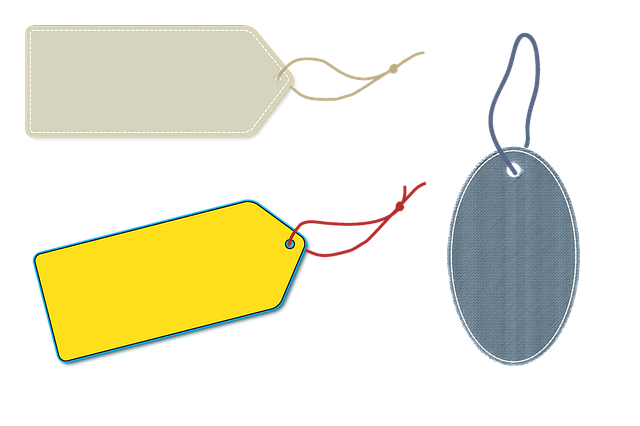Yard waste removal and recycling are critical practices for sustainable waste management, involving the collection and conversion of organic materials like leaves, grass clippings, twigs, branches, and garden residues into high-quality compost. This process not only reduces landfill use but also enriches soil health, supports plant growth, and contributes to carbon sequestration, helping to mitigate climate change effects. Municipalities across the region have implemented specialized collection services such as curbside pickup for these materials, which are then processed into compost or mulch, further promoting environmental health by returning nutrients to the soil and reducing reliance on chemical fertilizers. Homeowners can support this effort by segregating yard waste and engaging in DIY composting, which offers various methods suitable for different spaces and needs. Through these actions, individuals actively participate in a circular economy, diverting waste, minimizing greenhouse gas emissions, and fostering a biodiverse ecosystem within their own backyards, all while promoting sustainable living practices that have broader ecological benefits. Yard Waste Removal and Recycling thus play a pivotal role in environmental conservation and the promotion of greener lifestyles.
Embark on a greener path with our comprehensive guide on composting and recycling yard waste. This article delves into the transformative practice of repurposing organic matter from your garden, categorizing common types of yard waste and their composition. Explore eco-conscious removal options that prioritize Yard Waste Removal and Recycling, and uncover the science behind composting’s environmental and horticultural perks. Discover community initiatives that facilitate yard waste recycling and learn how to set up your own DIY composting system at home. Join us as we turn your garden’s waste into a valuable resource for sustainability.
- Understanding Yard Waste: Types and Composition
- Eco-Friendly Yard Waste Removal Options
- The Science of Composting: Benefits for Your Garden and Environment
- Community Programs for Yard Waste Recycling
- DIY Composting Solutions for Homeowners
Understanding Yard Waste: Types and Composition

Yard waste encompasses a variety of organic materials generated from landscaping activities, garden maintenance, and natural yard processes. This category includes leaves, grass clippings, twigs, branches, garden residues, and woody debris. Understanding the composition of yard waste is crucial for effective removal and recycling practices. For instance, leaves decompose differently than grass clippings; therefore, they require distinct handling methods. Similarly, woody materials like branches have different compositions and decomposition rates compared to garden residues. By categorizing these materials appropriately,yard waste removal and recycling can be optimized to reduce landfill use and create valuable compost. This not only aids in the sustainable management of yard waste but also contributes nutrient-rich soil amendments that benefit both soil health and plant growth.
Communities increasingly recognize the environmental benefits of yard waste removal and recycling programs, which is why many municipalities offer specialized collection services. These services often include curbside pickup for organic materials, which are then taken to composting facilities or community composting piles. The process of breaking down yard waste into usable compost not only diverts waste from landfills but also returns valuable nutrients to the soil, reducing the need for synthetic fertilizers and promoting sustainable landscaping practices. Homeowners and gardeners play a pivotal role in this cycle by segregating their yard waste and adhering to local guidelines on yard waste removal and recycling, thus contributing to a greener and more sustainable environment.
Eco-Friendly Yard Waste Removal Options

The Science of Composting: Benefits for Your Garden and Environment

Yard waste removal and recycling play a pivotal role in the science of composting, offering significant benefits for both home gardens and the broader environment. Composting is a natural process that transforms organic matter like leaves, grass clippings, and kitchen scraps into nutrient-rich humus, which serves as a vital soil amendment. This process not only diverts waste from landfills but also enhances soil structure and fertility, leading to healthier plant growth and reduced need for chemical fertilizers. The microbial activity within compost piles is a testament to the complexity of biological processes, where bacteria, fungi, and other decomposers break down organic matter through aerobic respiration, generating heat and improving soil health. By incorporating compost into your garden, you can bolster plant resilience against pests and diseases while promoting water retention in the soil.
Moreover, yard waste recycling contributes to carbon sequestration, as compost acts as a carbon sink by storing carbon in the soil, mitigating the effects of climate change. The practice of composting also encourages sustainable waste management, reducing greenhouse gas emissions that would otherwise be released from decomposing organic matter in anaerobic conditions. By engaging in yard waste removal and composting, individuals can significantly minimize their environmental footprint while cultivating a thriving garden ecosystem. This approach not only enriches the soil but also supports biodiversity by providing habitats for beneficial organisms and wildlife. Thus, the science of composting is not merely a gardening technique but an environmentally responsible practice that offers wide-ranging ecological benefits.
Community Programs for Yard Waste Recycling

Community programs for yard waste removal and recycling play a pivotal role in sustainable waste management practices. These initiatives are designed to divert organic matter from landfills, reducing greenhouse gas emissions and promoting soil health. Participants learn how to effectively compost, which not only recycles nutrients back into the soil but also cuts down on the need for chemical fertilizers. Many municipalities have established collection programs where residents can bring yard waste such as leaves, grass clippings, and garden trimmings to designated facilities for proper processing. These materials are then transformed into valuable compost or mulch, which residents can use to enrich their gardens and reduce the need for synthetic soil amendments. The programs often include workshops and educational resources to inform the community about the benefits of yard waste recycling and provide hands-on experience with composting techniques. Through these efforts, communities contribute to environmental sustainability while fostering a greater awareness of the impact of individual actions on the broader ecosystem.
DIY Composting Solutions for Homeowners

Homeowners looking to reduce their environmental footprint can significantly impact sustainability through DIY composting solutions. Yard waste removal and recycling are key components of this process, as a considerable amount of organic matter from garden maintenance can be transformed into nutrient-rich compost. By selecting an appropriate space in your yard, you can start a compost pile or bin that will break down plant trimmings, grass clippings, leaves, and even kitchen scraps. This not only diverts waste from landfills but also enriches the soil for your garden, leading to healthier plants and a more self-sustaining landscape. To initiate the composting process effectively, it’s beneficial to maintain a balance of green (nitrogen-rich) and brown (carbon-rich) materials, ensuring aeration and moisture levels are optimal. This balance accelerates decomposition and minimizes odors and pests. Yard waste removal and recycling through composting is not only rewarding but also contributes to a healthier environment by decreasing the need for chemical fertilizers and reducing greenhouse gas emissions that would otherwise occur from decomposing waste in landfills.
Furthermore, there are various DIY composting methods to suit different homeowner needs and preferences. Hot composting is an efficient method for those with sufficient space and the patience to maintain ideal conditions. Alternatively, vermicomposting, which utilizes worms to break down organic matter, can be a great option for apartment dwellers or those with limited outdoor space. Regardless of the chosen approach, yard waste removal and recycling should be an integral part of your composting strategy, as it directly supports local recycling efforts and promotes a circular economy within communities. Engaging in this practice not only educates you on sustainable living but also sets an example for neighbors and family members, potentially inspiring others to participate in yard waste removal and recycling initiatives.
Effective yard waste management through composting and recycling offers a multifaceted approach to environmental stewardship. This article has delved into the various aspects of understanding yard waste types, exploring eco-friendly yard waste removal options, elucidating the scientific processes of composting for ecological and horticultural benefits, and highlighting community programs dedicated to these practices. Homeowners interested in DIY composting solutions will find that such initiatives not only contribute to sustainability but also foster a healthy garden ecosystem. By integrating these methods into daily routines, individuals can significantly reduce their environmental footprint and promote resource conservation. Embracing yard waste removal and recycling is a commendable step towards a greener future for all.






